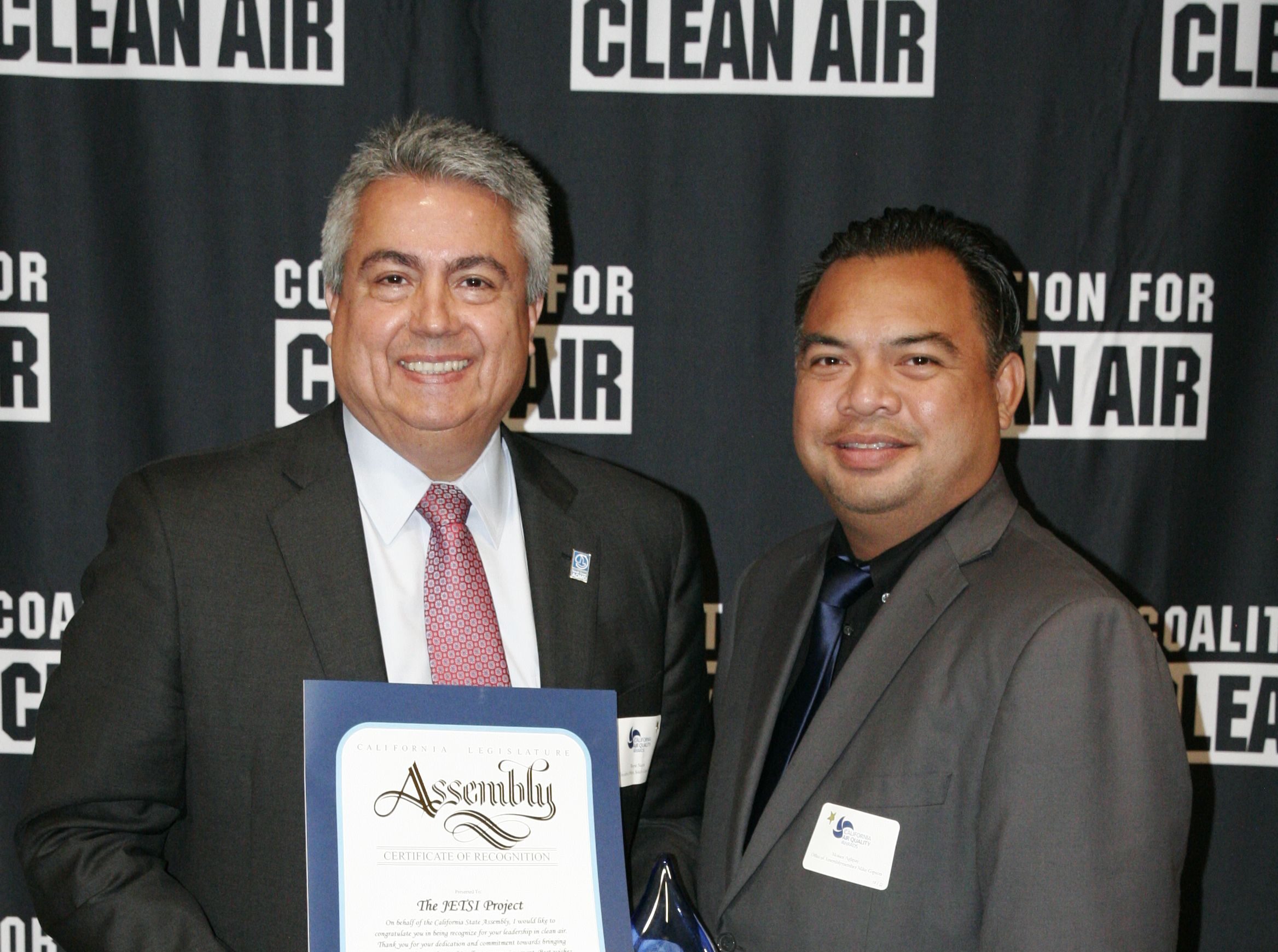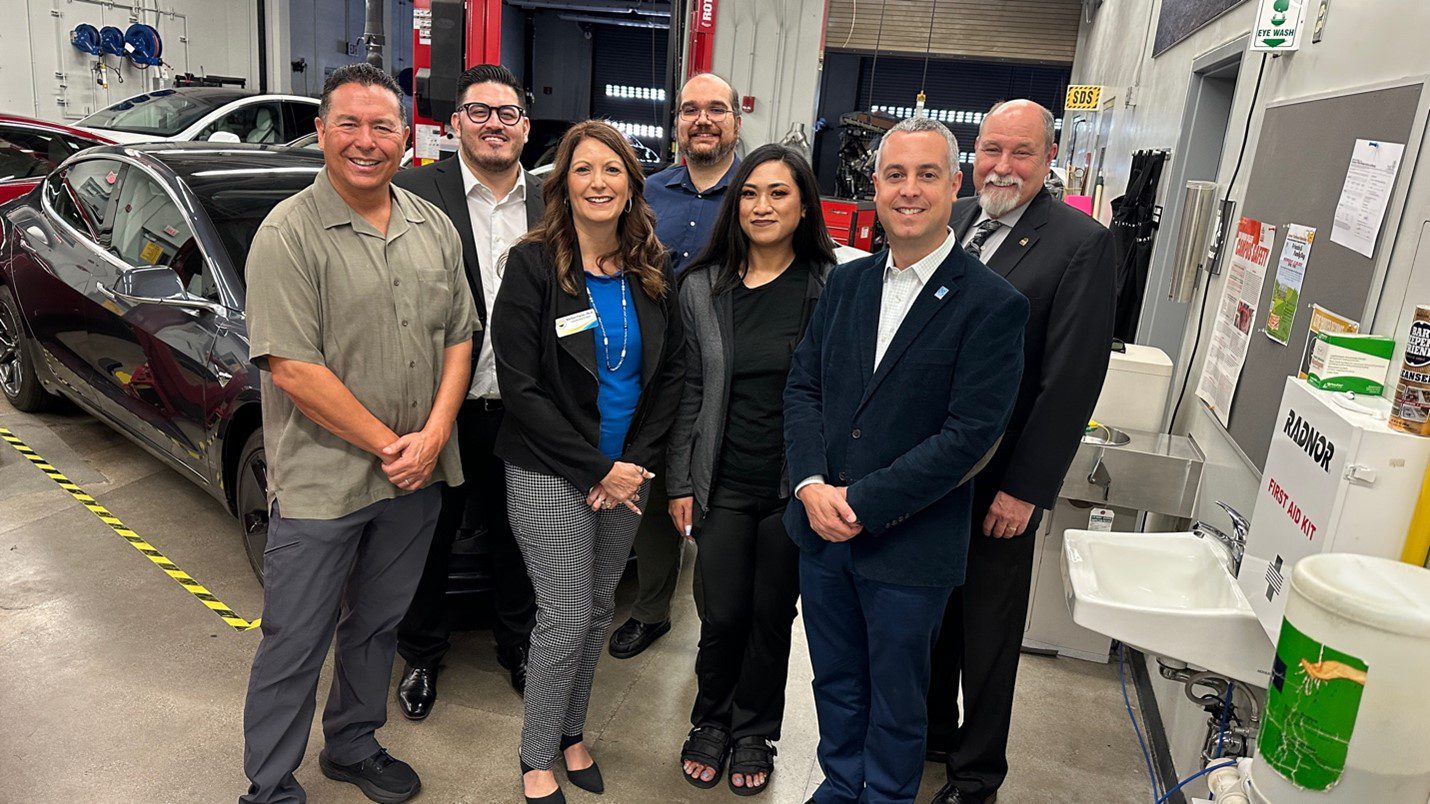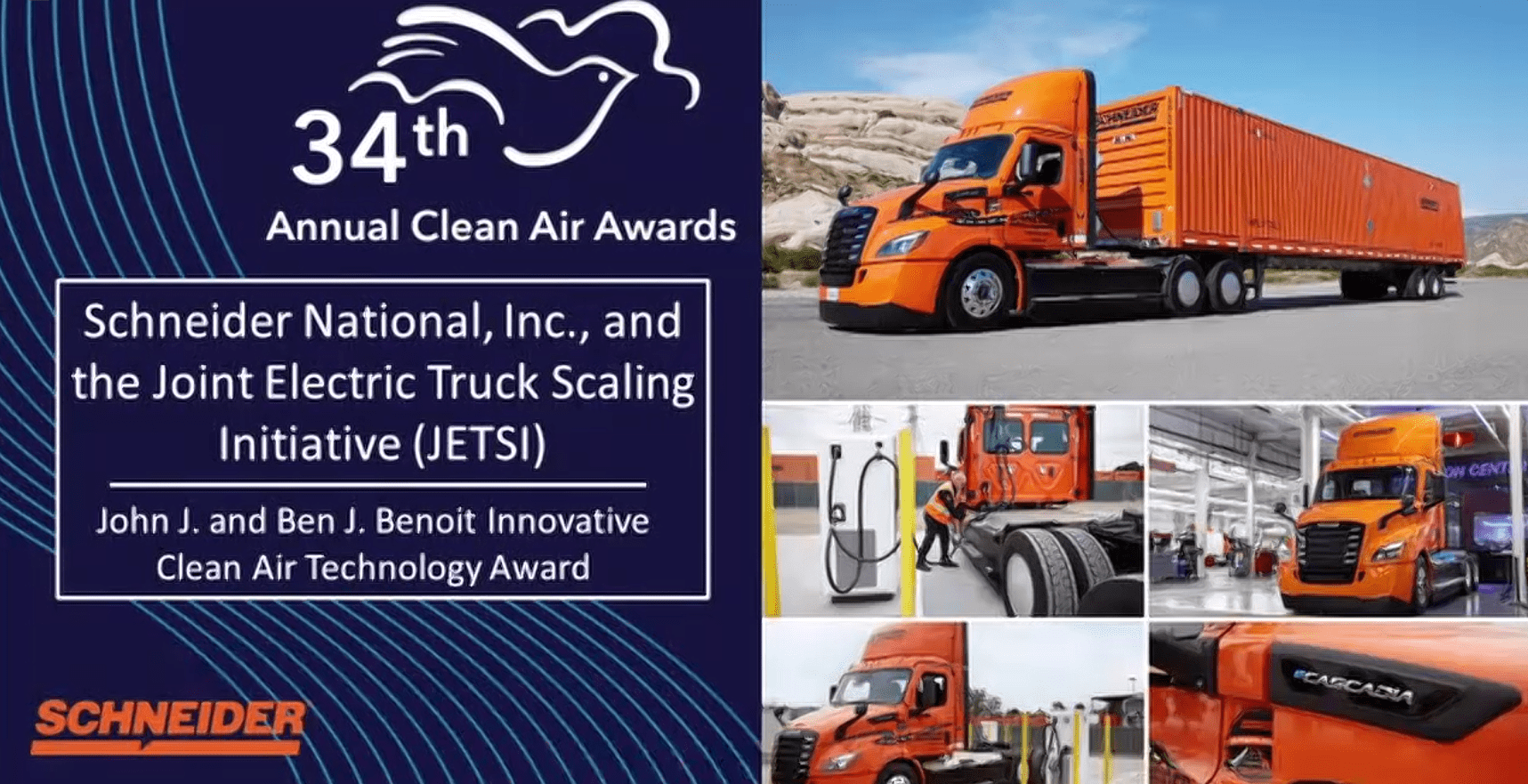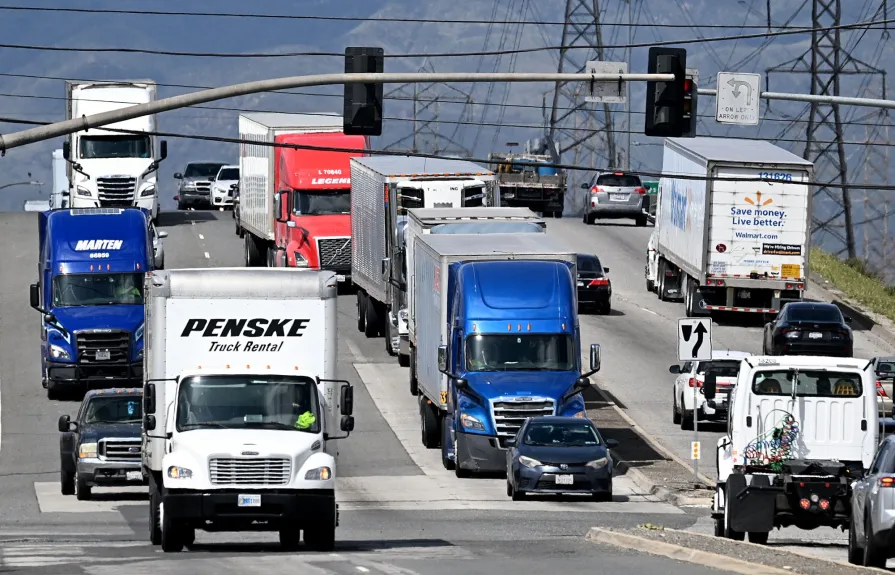Environmental Benefits
The JETSI project will support widescale deployment of zero-tailpipe emission freight trucks, helping to improve local air quality and protect our climate.
One of the most significant community benefits from the JETSI project is improved air quality. The JETSI project puts 100 zero-emission battery-electric trucks (BETs) into service with two Southern California fleets where diesel trucks previously operated, eliminating diesel exhaust fumes for hundreds of trucks trips daily. Through direct experience, outreach to fleets to share lessons learned, and connections to develop community awareness and greater support for electrification, JETSI is designed to showcase successful zero-emission goods movement in the logistics and freight industry. As more communities and fleets learn from the JETSI project to make the transition, BETs will be more widely deployed in the region and beyond, accelerating the improvement in local air quality, as well as decarbonization at global scale.






